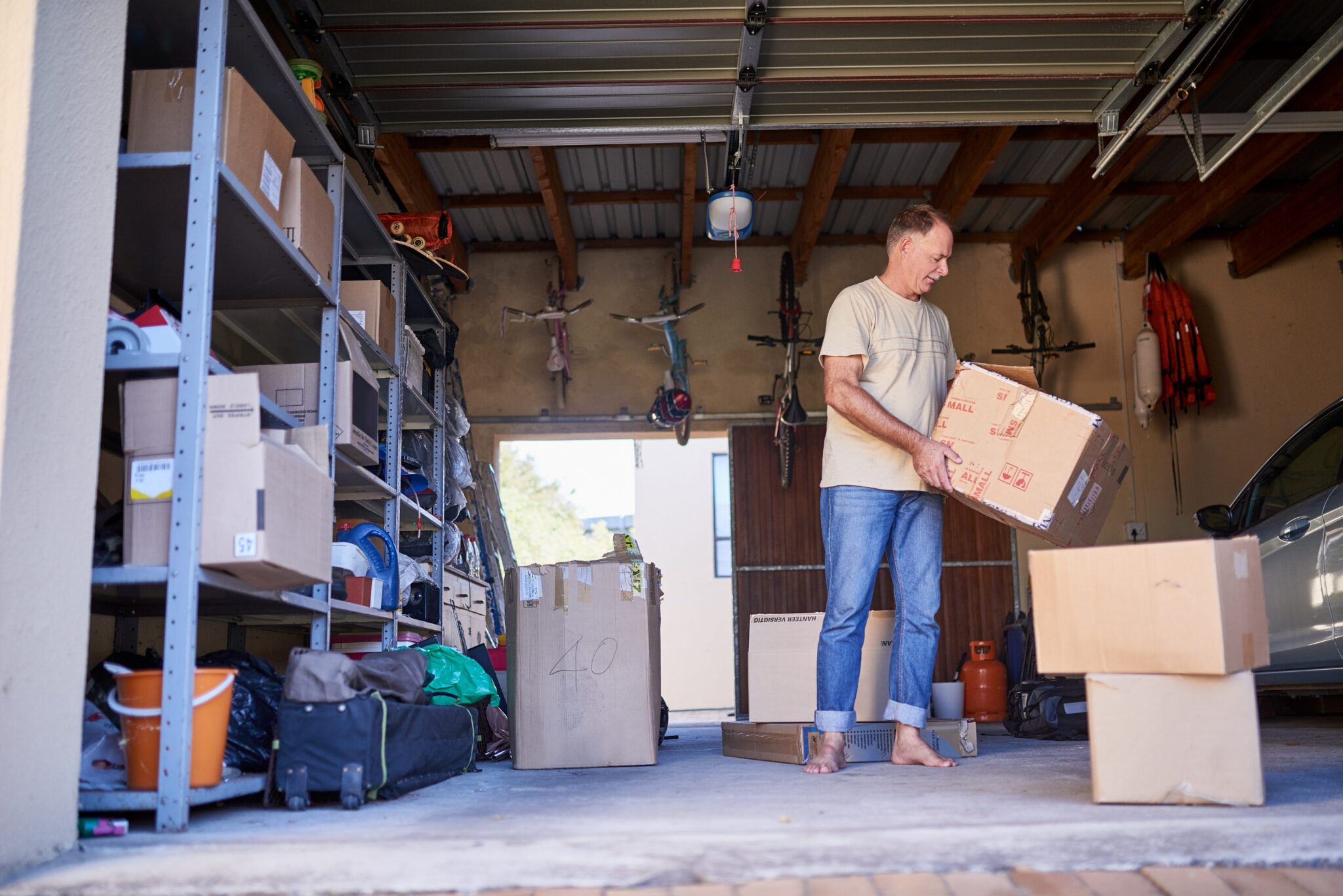Garages often contain flammable liquids, gasoline-powered equipment, and electric tools and
appliances, all of which can cause a fire. Unfortunately, that means garage fires are more common than
you might like to think.
And because garages tend to be used for storage, too, there is lots of fuel to help flames grow. In fact,
garage fires often spread farther and cause more damage than fires that begin elsewhere in a home.
That’s why it’s important to think about fire safety when using your garage. Here are a few tips:
- Make sure to properly seal containers of flammable liquids (oil, gas, propane, paint,
varnish, etc.) and store in a metal cabinet or, if possible, in a shed away from
your home. - Fill portable gasoline containers OUTSIDE your garage and store gasoline cans in a
separate shed if possible. - Keep the floor clean of oil or fuel leaks from cars, lawn mowers, or other equipment.
- Never leave oily rags or cloths used for staining out in the open or put directly in the
trash. Properly dispose of them by placing in a metal container with some water and
seal the container closed. Check with your town on how to dispose of the container. - Only plug one appliance or tool into an outlet at a time AND unplug when not in use.
- Do NOT overcharge batteries – once full, remove the battery from the charger and
unplug the charger. - Do NOT use extension cords as a permanent electrical source with appliances,
equipment, or tools. Extension cords should always be considered a temporary use
item. - Storage of items should be done on shelves away from appliances and electrical outlets.
- Declutter your garage to minimize the potential fire load.
- Never smoke or use grills, kerosene heaters, or generators inside a garage.
- Never use or install solid wood-burning devices (wood, pellet, coal) in a garage.
Smoke alarms are not recommended for garages because conditions there would likely cause false
alarms. However, you can install a heat alarm, which will sound if the temperature rises too high.
Always keep a fire extinguisher handy in your garage. Mount it in an easy-to-access location and make
sure family members know how to use it by teaching them the acronym P.A.S.S. That stands for:
- Pull the pin on the extinguisher
- Aim at the base of the fire
- Squeeze the handle of the extinguisher
- Sweep from side to side